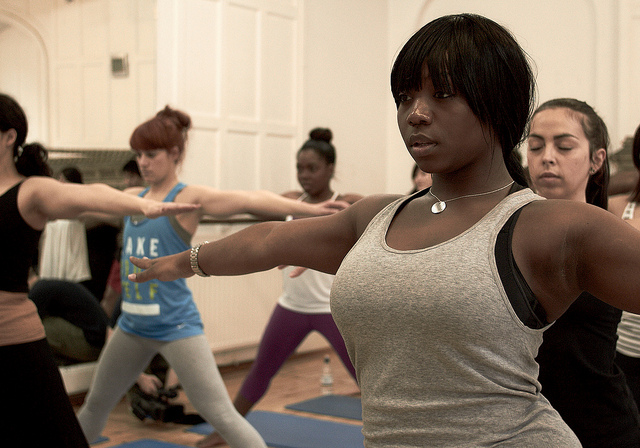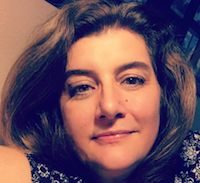We all want to help people, so you know how it can be when you come across a good thing, right?
Your clients like it, you like it, and you can see that it is making a difference.
We had discovered something amazing. Here’s how the story started:
The Center for Trauma & Resilience (CTR) is a 30-year-old non-profit organisation committed to supporting those who have experienced trauma by providing counseling, case management, and a wide variety of services to a diverse community.
When I say diverse, I am talking about ethnicity, gender, age, religion, economics, education, marital status, large and small, because anyone can experience trauma (some would say everyone does.)
Because of this, we are always striving to find new and effective ways to help and support our folks. We like to keep things fresh and stay ahead of the curve, so every year we have “new program planning time” and, this particular year, we were dreaming big.
The time was right, the staff was right, and it we were ready to expand how we connect with our clients. Our goal was to increase the ways we encourage people to move, both literally and figuratively, towards their physical, emotional, and mental health goals, as well as assist them in creating a therapeutic community.
We were looking for ways to help our clients get back into their bodies, and feel the benefits that a healthy lifestyle could offer.
This was a daunting task, not only is our client population diverse, but so is our staff. While there are only 16 of us, we range in age from 24 to 70-something. We are women, men, gay, straight, tall, short, able-bodied, small, large, Black, Latino, White, Christian, Muslim, atheist, and “none of your business.”
We have the introverted and extroverted, equal numbers English and Spanish speaking, as well as staff members from six different countries. There are the animal lovers, and the “not so much,” kids, no kids, social workers, counselors, an anthropologist, and a lawyer. Consensus is not always easy—but we find a way with a common goal.
We read, we researched and tried alternative modalities ourselves, including but definitely not limited to, exercise, yoga, nutrition, art, acupuncture, animal-assisted therapy, ropes course, floatation, meditation, and probably any additional things you can imagine. All of these we refer our clients to, but none of which we have been able to provide in-house. We held focus groups, talked to our service provider community, our friends, and our families.
We all came back to the table for a vibrant, passionate, and interesting discussion. This resulted in each of us learning a lot.
Then it happened—Trauma Sensitive Yoga!
TSY seemed not only to be a fantastic option that fit into our philosophy, our space, and training, we also found that certification was possible. We created specialized and individualized groups based on our clients’ wants and needs.
Our clients, from children to seniors, loved it. We could take TSY to our community, and our community could come to us. We could develop groups, as well as incorporate it into individual sessions. In fact, it was such a hit that we also began offering it to other service providers and community members who were experiencing vicarious trauma and compassion fatigue.
We call the program Befriending the Body, and since all of our services are free of charge to clients these groups were not going to pay for themselves. What do you have to do to fund something? Show that it works!
It was 2014 when we first collected and analyzed pre and post-evaluation from 88 participants in Befriending the Body (BTB) trauma-sensitive yoga Program.
Up until this time we intuitively knew that this yoga thing was really making a difference, but we needed to take it a step further and measure the effectiveness of the series. Participants in the group varied tremendously, so we wanted to make sure to use measurements that had been normed and verified for validity and reliability with diverse groups of participants.
We chose the Trauma Symptom Checklist (TSC-40), Scale of Body Connection (SBC), and Quality of Life Enjoyment and Satisfaction Questionnaire (Q-LES-Q-SF) measurement instruments.
Each TSY group was made up of a certified yoga instructor, a counselor with trauma specific training, and 8-12 group members. Prior to starting the group, the counselor met with each participant for an intake similar to an intake used for a trauma support group.
The goals of the TSY group included:
1. Learn how to stay in the present using centering and grounding techniques.
2. (Re)Establish a sense of connection to self and others.
3. Learn how to listen to what the body needs.
4. Apply skills learned in class to everyday triggering situations.
Participants then completed the pre-group set of evaluations, completed an eight week series of trauma sensitive yoga, and then completed a second set of post evaluations. We used SPSS to complete both T tests and paired tests to analyze the results.
The TSC-40 revealed statistically significant decreases in dissociation, anxiety, depression, sleep disturbances, sexual problems, and a decrease in their scores on the Sexual Abuse Trauma Index.
The SBC revealed statistically significant changes in an increase in body awareness, and a decrease in body dissociation.
The Q-LES-Q-SF revealed relevant changes in overall life satisfaction from fair to good.
Then we knew, TSY not only feels good—it does good.
We continue to offer TSY groups to primarily underserved populations, groups of people that may previously not have seen the value in yoga, let alone be willing to try it.
We provide yoga groups to seniors, people of color, children, crime-specific groups like domestic violence, large and small sized participants, clients, service providers, Muslim women at their local mosque, monolingual Spanish speaking communities, and we even offer yoga in the jail.
We have continued with our pre and post-testing and continue to find the same results—it really works!
~
~
~
Author: Kathi Fanning
Image: flickr/rufaiajala
Editor: Lieselle Davidson







Read 0 comments and reply